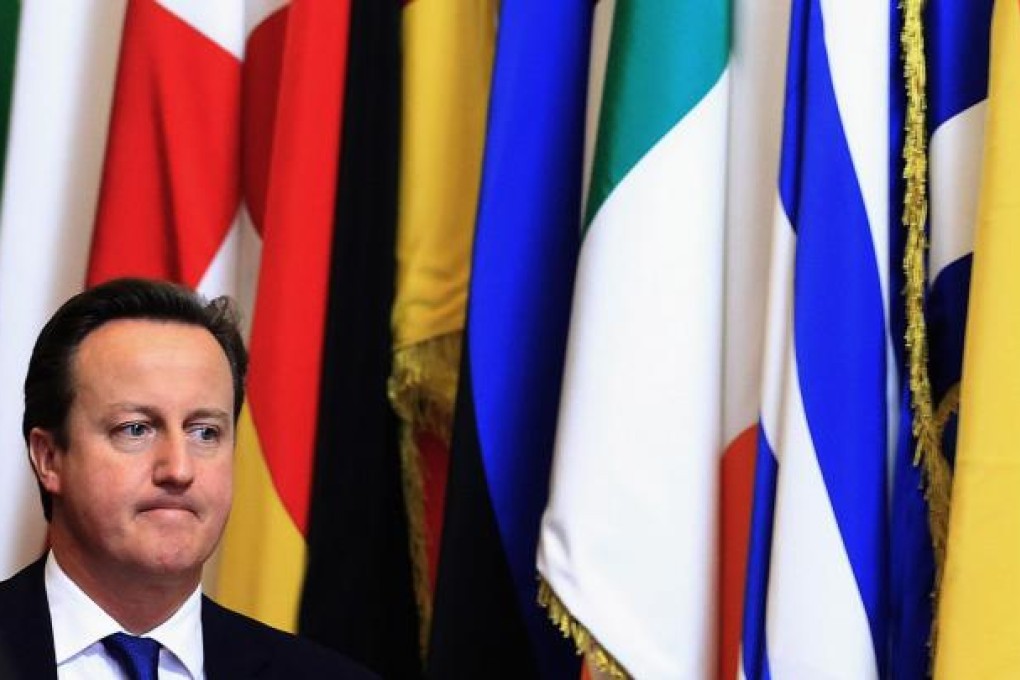Can David Cameron parlay Britain into staying in EU?
David Cameron takes a big risk in trying to tweak Britain’s role in the EU, hoping it will sway Britons in referendum

British Prime Minister David Cameron has embarked on an uncertain venture with his plan to change the terms of membership in the European Union to make sure voters choose to stay in the grouping during an "in-or-out" referendum.

British voters, depicted as increasingly disgruntled with EU encroachment on what they see as sovereign issues, will be asked to decide whether they want to remain in the 27-nation bloc.
In the meantime, Cameron will renegotiate his country's relationship with the EU to make changes he says will be more favourable, if not to all members, then at least to Britons.
The source of concern is the crisis in the euro-zone.
The relief at having stayed outside the single currency is palpable in Britain. Had it bought in it would have faced problems similar to those plaguing the former "tiger" Ireland.
It is now apparent that if the euro is to survive, and the euro zone remain intact, the EU will have to become more united. This raises the spectre of political union, and the consequent relinquishing of ever more decision-making power to a centralised bureaucracy.